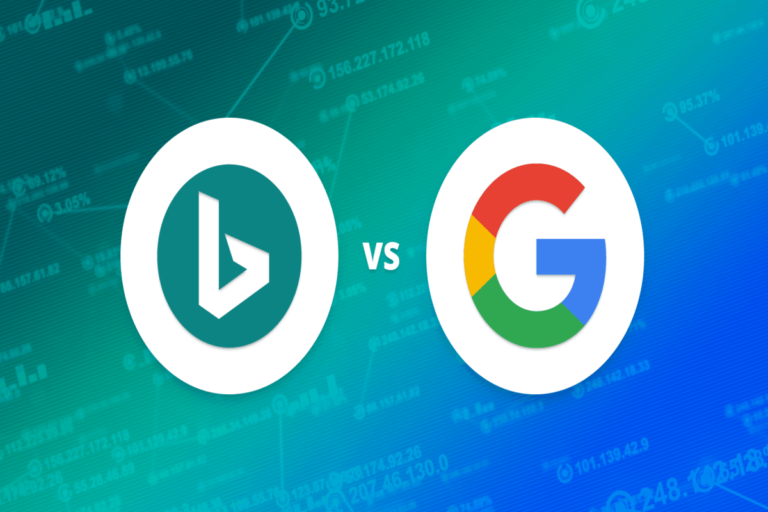In the ever-expanding realm of search engines, Google has undoubtedly reigned as the undisputed champion for years. However, with Microsoft’s Bing gaining traction and offering a unique set of features, the question arises: Could Bing potentially replace Google? In this article, we’ll delve into the world of Bing, explore its innovative offerings such as Microsoft Bing Chat, Microsoft Bing Image Creator, and Microsoft Bing AI Generator, and discuss whether it could truly stand as a formidable alternative to the search giant.
What is Bing?
Bing, developed by Microsoft, is a web search engine that aims to provide users with a comprehensive and intuitive search experience. Launched in 2009, Bing has steadily grown in popularity and features, offering a range of tools beyond simple keyword-based searches. As one of the prominent players in the search engine arena, Bing has positioned itself as a contender to Google’s dominance.
Microsoft Bing Chat
One of Bing’s innovative features is Microsoft Bing Chat, a conversational chatbot powered by artificial intelligence. This chatbot serves as a personal assistant, helping users find information, answer queries, and even engage in casual conversations. Microsoft Bing Chat’s integration of AI technology enables it to understand and respond to user inquiries, making the search experience more interactive and engaging.
Microsoft Bing Image Creator
Visual content has become an integral part of online communication, and Microsoft Bing Image Creator recognizes this trend. This tool empowers users to create captivating images by combining their text inputs with visually appealing backgrounds. With a user-friendly interface and a vast collection of images, Bing Image Creator offers a creative way to enhance content and make it more visually appealing, catering to both casual users and content creators.
Microsoft Bing AI Generator
Artificial Intelligence has permeated various aspects of our digital lives, and Bing’s AI Generator takes this integration a step further. This feature utilizes AI to generate human-like text based on the input provided by users. Whether it’s drafting emails, composing articles, or crafting creative pieces, Bing AI Generator showcases the potential of AI-driven content creation. While it might not replace human creativity entirely, it presents a glimpse into the evolving capabilities of AI technology.
Google Ads vs. Bing Ads
When it comes to online advertising, Google Ads and Bing Ads stand as the foremost contenders, each offering distinct advantages to advertisers. Google Ads, owing to Google’s dominance in the search engine market, provides unparalleled reach and visibility. Its vast user base and sophisticated targeting options make it an attractive choice for businesses looking to tap into a global audience. More publishers are plugged in to the Google network, and as such, it is inevitable that it serves a larger pool of advertisers, casting a wider net to consumers.
On the other hand, Bing Ads, backed by the Microsoft ecosystem, boasts a more mature audience in certain niches and industries. While it might not command Google’s market share, Bing Ads often provides a cost-effective alternative with less competition, making it an appealing avenue for businesses aiming to maximize their return on investment. Their publisher pool is growing, and so is their advertising revenue and figures. Many will argue that it’s only a matter of time until Microsoft catches up with their main competitor.
The choice between Google Ads and Bing Ads hinges on factors such as audience demographics, budget considerations, and campaign objectives. As advertisers navigate this landscape, understanding the nuances of each platform is key to crafting a successful online advertising strategy.
Could ‘Bing’ Replace ‘Google’?
The question of whether Bing could replace Google is a complex one. While Bing has made significant strides in innovation and user experience, Google’s dominance in the search engine market is deeply entrenched. Google’s algorithmic prowess and vast database of indexed pages give it an edge that is challenging to overcome.
However, Bing’s differentiation lies in its unique features. Microsoft Bing Chat offers a conversational aspect that Google’s search interface currently lacks. The integration of AI-driven tools like Bing Image Creator and Bing AI Generator showcases Bing’s commitment to pushing the boundaries of search engine capabilities. These features cater to users seeking a more interactive and visually enriched search experience.
Furthermore, Bing has forged partnerships with other tech giants like Yahoo and AOL, expanding its reach and user base. It has also integrated seamlessly with Microsoft’s suite of products, further enhancing its ecosystem.
In terms of privacy, Bing has taken steps to prioritize user data protection, and some users might find this a more appealing option compared to Google, which has faced scrutiny over its data practices.
However, Bing still has ground to cover. Google’s comprehensive knowledge graph, accurate search results, and familiarity make it the go-to choice for many users. Additionally, Google’s continuous investment in cutting-edge technologies keeps it at the forefront of search innovation.
Conclusion
While Bing presents itself as a promising alternative to Google, it’s unlikely to replace the search giant entirely. Instead, Bing serves as a valuable addition to the search engine landscape, offering unique features that cater to specific user preferences. Whether you’re drawn to conversational chatbots, AI-driven content generation, or visually appealing image creation, Microsoft Bing provides an alternative search experience that is worth exploring. As technology continues to evolve, Bing’s trajectory could hold exciting possibilities, shaping the future of search engines alongside its competitors.
In a digital age where information is at our fingertips, the choice between Bing and Google ultimately depends on individual needs and preferences. Both search engines offer distinct advantages, and the ongoing competition between them spurs innovation, benefitting users worldwide. As Bing continues to refine its offerings and solidify its position, the search engine landscape is destined to become even more dynamic and user-centric.
So, the next time you embark on a quest for information, consider venturing into the realm of Bing. Who knows what new and exciting features you might uncover?



